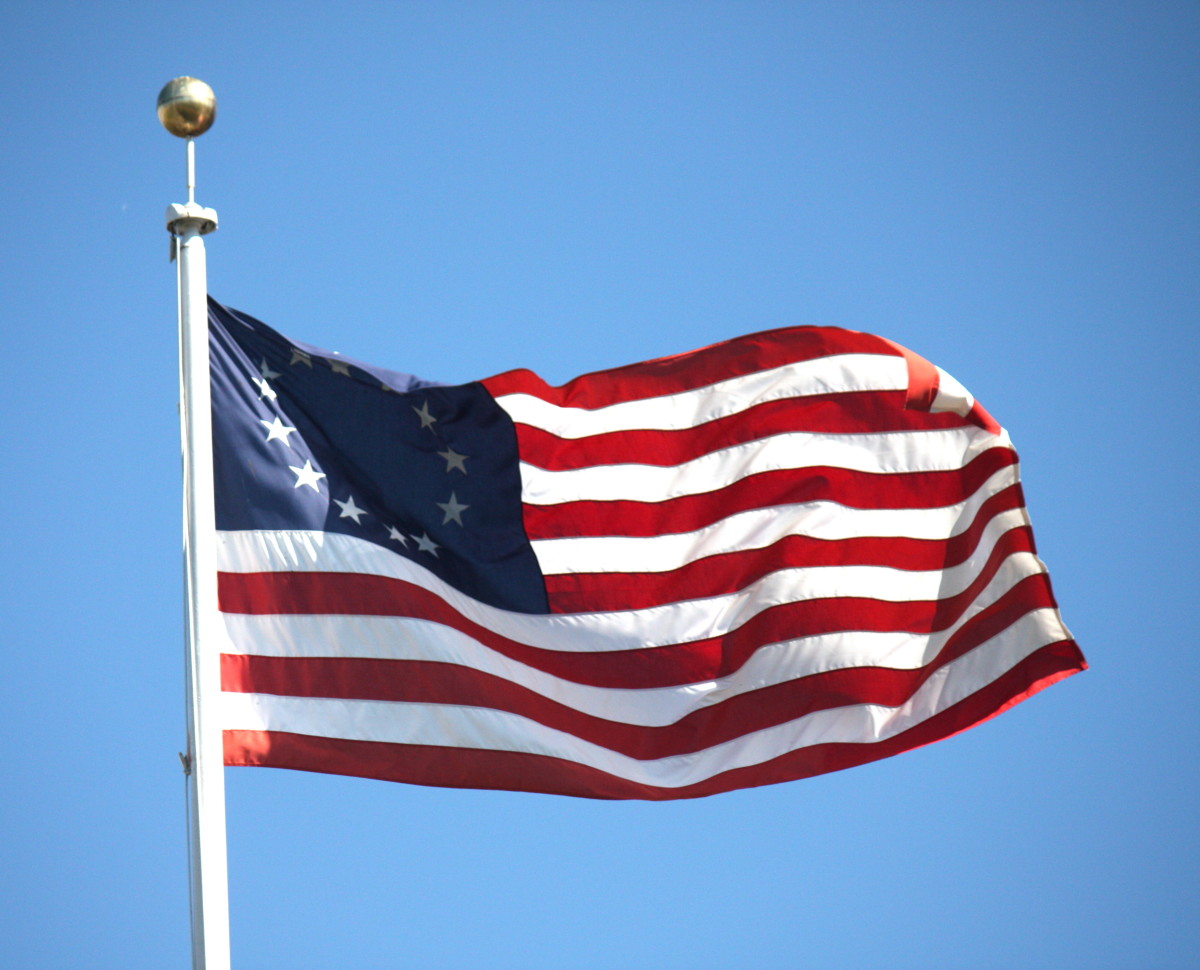by Lucas M. Engelhardt – Mises Daily:
“Sound money and free banking are not impossible — they are merely illegal. Freedom of money and freedom of banking are the principles that must guide our steps.” — Hans Sennholz
When I was asked to give the Hans Sennholz Memorial Lecture, I was uncertain what I should speak about. Should I give an inspirational, autobiographical talk about life as a young academic? Should I present cutting edge research? Should I advocate for better policy in some “hot” political topic? In the end, I looked at the title of the lecture — this was the Hans Sennholz Memorial Lecture. So, I decided that I should present something Sennholzian — especially since I am a Grove City College alumnus, though I was never a student of Sennholz — who had retired before I was a student here.
The only problem was that I knew embarrassingly little about Hans Sennholz. I had heard him speak — in the same room where I was going to speak — once. But, I only remembered two things about him. First, I remembered his German accent. Second, I remembered a brief story that he told about his experiences in academic publishing. Apparently, Harvard asked him to write an article — I don’t think he mentioned what — so he did, they published it, and he was paid $15 for his efforts. He thought this must be some mistake. Not much later, Harvard approached him again, so he wrote for them again — they printed it, and he received another $15. He decided to stop writing for Harvard. (Sennholz’s academic publishing experience is quite different from mine. I wrote an article that I sent to one of the American economic journals. They decided not to print it, and I paid them $100.)
Anyway, after realizing that I should discuss something Sennholzian, and realizing my own ignorance of Sennholz’s work, I hit the library and reserved every book by Sennholz in the state of Ohio’s library system. As I flipped through them: Age of Inflation; Debts and Deficits; The Great Depression: Will We Repeat It?; Money and Freedom a central theme emerged, and it’s the theme in the quote that I began with: Sound money and free banking. So, I hope to present to you today what I call a case for monetary independence — that is, a case for the separation of money and State. To make this case, I will consider a number of different institutional arrangements for how the monetary system may be organized.
Fully Dependent National Central Banks
Let’s start with the worst case — a central bank that is fully dependent on the political system. In effect, in such a system, the Treasury would have the power to create money at will. Economists generally agree that such a system would lead to very high rates of inflation. Government spending is popular — the left loves their social welfare programs, while the right likes funding a large military. However, taxes are politically unpopular — especially with those that have to pay them. So, it is unsurprising that governments typically run deficits. If the government were given direct control over money creation, one can expect that deficits would be funded largely by the creation of new money, as the effects of money creation are much easier to hide than the effects of taxation or decreases in spending.
The end result that economists expect with this framework is that hyperinflation becomes a very real possibility. Historically, hyperinflations tend to occur when large deficits are funded with money creation. This isn’t shocking — a $1 bill costs just about $0.07 to print, so money production is quite profitable. It’s a cheap way of raising funds for the government, and zeros are cheap. So, as prices go up and the money loses value, the Treasury can maintain their profits simply by adding zeros. Eventually, we end up with a Zimbabwe scenario. I have 180 trillion Zimbabwe dollars that I bought on eBay for $15 — and that included protective plastic sleeves. I suspect the sleeves are more valuable than the money inside them, but the point is: zeros are cheap. That being the case, there is virtually no limit to the inflation that a Treasury could create if it were giving the power to create money directly. For this reason, most economists now suggest that central banks should be independent.
Independent National Central Banks
In some ways, the claim that money should be independent of the State is a bit blasé. Over the past twenty or thirty years, the mainstream economics literature has converged around the idea that central banks — which govern monetary policy — should be independent of the governments that they operate under. Alberta Alesina and Larry Summers (Summers is the former Treasury Secretary under President Clinton, and former Director of the National Economic Council) found that independent central banks have better inflation performance — without having higher unemployment or more economic instability than countries with central banks that are less independent. Even President Obama has been clear that he supports a “strong and independent Federal Reserve” — an odd statement given that he has appointed all five of the current members of the Board of Governors, and appears to be looking to appoint more.
And the reality is that the Federal Reserve is not very independent. Dincer and Eichengreen, in a paper in the International Journal of Central Banking, ranked the United States’s Federal Reserve System as one of the four least independent central banks in the world — along with India, Singapore, and Saudi Arabia.
Beyond the institutional connections, there are clear policy connections between the Federal Reserve and government spending. After controlling for the state of the economy, a $1 deficit appears to be funded by about $0.30 of additional monetary base. So, while the Fed is not funding the government dollar-for-dollar, there does appear to be a very close connection between the two. The reason is simple: the Fed, under its current ideology, targets interest rates. If the government borrows a lot, it will drive interest rates up. So, the Fed produces more money to put into loan markets to drive rates back down to their target levels. The end effect is that the Fed is funding a significant portion of the government’s deficits.
So, is this any better than a fully dependent central bank? As many economists love to say — it depends. When the time comes, will the Fed decide to fight inflation rather than continue to fund government deficits? It is impossible to say for certain — though I will say two things. First, mainstream macroeconomists seem to have achieved a consensus that fighting inflation is a very important goal of monetary policy; perhaps the most important goal in most countries at most times. Second, the leadership of the Federal Reserve is convinced that, at the moment, inflation is not much of a concern. Whether they will change their minds in time, and have the political fortitude to stand up to a government that will, in all likelihood, still be deficit spending, is uncertain enough that I won’t speculate one way or the other.
Independent, Discretionary, International Central Banks
As we know, the Federal Reserve is not very independent. So, what does it take to make a central bank independent? Based on Nergiz Dincer and Barry Eichengreen’s research, the most independent central banks are mostly found in the Eurozone — where the European Central Bank is in control of monetary policy.
Is this international system a “better” one, though? Let’s take this to an extreme — an extreme which some people have suggested — and consider the benefits and drawbacks of such a system. Let us imagine that all central banks ceded their authority to the International Monetary Fund, which then acted as a single one-world central bank.
This system does, admittedly, have a number of very real benefits. Trade is certainly easier when there is a common currency. Decreased worries regarding exchange rate fluctuations encourage long-term investment projects across national boundaries, which can increase productivity by locating capital where it will be most productive, rather than where worries about currency stability are smallest. The IMF can be expected to be independent of any single government’s pressure to fund deficits — or at least more independent than a national central bank would be.
The drawbacks, however, are substantial. In his book The Tragedy of the Euro, Philipp Bagus suggests that the formation of the Eurozone created a tragedy of the commons in which weak economies — such as Greece, Portugal, and Spain — had incentives to run large budget deficits, funded, indirectly, by the European Central Bank. As the first recipients of newly created money, deficit-running economies can spend the money before it has its full impact on prices — thereby gaining at the expense of those countries that run more balanced budgets. This naturally creates an incentive for countries to run budget deficits — and, in fact, to compete for running the largest ones. This is a recipe for some combination of exceptionally high inflation — if the central bank were to accommodate the deficits or exceptionally high interest rates — if the central bank were to stand its ground.
While it may be that an international central bank could stand its ground more effectively than a national central bank could, recent experience in Europe raises questions about whether international central banks actually will stand their ground.
I want to make one last point about the danger of an entirely unified system: when doing risk management — and a lot of policy is really just risk management — one needs to pay attention to the worst case scenarios. As long as the central bank has discretion, the odds that — at some point in its history — the central bank is going to make a very large mistake is very high. The question then becomes: what is Plan B? We have seen in recent years that national-level hyperinflation, though terrible, has been fairly easy to recover from. The reason can best be seen by examining Zimbabwe. In its hyperinflationary episode in 2008, the internal economy of Zimbabwe was so disrupted that the gross national income per capita had fallen to its lowest level in forty years. However, since that time, gross national income per capital has more than doubled to its highest level since 1983. How did this happen? Zimbabweans abandoned their hyperinflated currency in favor of some combination of the euro, US dollar, and South African Rand — all of which were stable when compared to the Zimbabwe dollar. The adoption of a currency that is more stable gave people confidence to engage in market transactions again — which unfettered resources that had been largely unusable in a hyperinflationary environment.
This solution, though, required the existence of alternative currencies to switch to. What would happen if a single world central bank made a similar mistake? The answer is not at all clear, but I suggest that a worldwide hyperinflation, if it were to occur, would seriously disrupt the division of labor, and thereby lead to a collapse in the worldwide standard of living. The recovery would not be easy, as it would require the reintroduction of a new currency that is actually trusted by the people enough that they would accept it as a medium of exchange. Historically, some countries have succeeded at reintroducing a re-based form of their own currency — but there are also many cases, Zimbabwe among them — where the reintroduction failed.
Given, then, that there would be strong incentives toward hyperinflation, the odds of a hyperinflation actually occurring in a system with a single world central bank, at some point, are far from zero. In fact, given a sufficiently long time period, hyperinflation — or at least some form of serious monetary mismanagement — becomes highly likely. Is this risk worth the advantages? In my assessment, they are probably not.
Monetary Policy Rules
All that has been said thus far has assumed that money is produced by some human monetary policymaker that has some discretion about how much money they can produce. A popular alternative is a rule-based monetary policy. In this case, the political system sets up a monetary policy rule which, somehow, they are unable to alter. This rule then automatically decides what monetary policy should be.
There are several such rules that have been proposed. Milton Friedman’s constant money growth rule was one early — and remarkably simple — example. Friedman suggested that the money supply should grow at a constant rate near 3 or 5 percent. Given that production, on average, grows at a similar rate, this rate of growth will lead to an overall level of prices that is basically stable over the long run. Since Friedman, a number of other rules have been proposed. John Taylor famously proposed his rule which is based on a combination of recent inflation and the recent state of the economy relative to its long-term trend. Scott Sumner suggests what he calls Nominal GDP targeting — an idea not original to Sumner, nor does he claim it to be.
Rather than criticizing each of these individually, I will suggest a few difficulties with this institutional arrangement — regardless of the specific content of the rules.
The primary difficulty, of course, is the political one. Any political system that is strong enough to establish a monetary policy rule is strong enough to modify it — or discard it. So, what would it take for the monetary policy rule to be established and then left alone? We know that there are times that policymakers are actually strong enough to implement a policy, but would not be strong enough to eliminate it. I think of Social Security as an example. In this case, the policy created an interest group — and a popular one — that would fight for the policy to continue. Everyone loves their Grandma, and everyone’s Grandma loves Social Security — so it is such a popular program today that no politician would be willing to seriously attempt to eliminate it. For us to do this with monetary policy, we’d need to have a monetary policy rule that created a popular interest group that would resist any changes to that rule. How to do that is not clear to me — but I may just be uncreative at coming up with political solutions.
Even if we were to solve the political problem, these rules all share in common certain economic problems — primarily one of measurement error. Any use of economic data must acknowledge that discussing data from a scientific standpoint, such as saying that the overall price level will rise if the money supply increase sufficiently quickly, is different from saying that a particular measurement of that variable will act in a specific way. The Consumer Price Index, Producer Price Index, and GDP Deflator all seek to communicate the “overall price level” — but they all have weaknesses.
That is: the statistics that we can actually measure don’t align perfectly with the scientific conceptions that they are designed to estimate. In short: in reality, there is error in any macroeconomic measurement. For scientific purposes, this is something we can deal with. As long as our statistics are reasonably well correlated with the underlying reality that we care about, errors can be expected to, in a sense, cancel out, on average. So, as long as actual prices, on average, act like the CPI, and as long as the true money supply, on average, acts like M2, then any statistical connection between CPI and M2 would be expected, on average, to reflect the actual relationship between money and price levels.
But, policymaking is an entirely different matter — it’s far closer to engineering than science. That being the case, the errors are, in a sense, exactly what matter. If our measure of the money supply is temporarily undermeasuring the true money supply, then we’ll end up creating too much money under a Friedman rule. Is this temporary? Yes, but in the world of economics, temporary things are exactly those things that create economic disruptions.
An additional economic problem with these rules is that they assume that, in a sense, the world is, or should be, static. The Friedman Rule and Nominal GDP targeting both implicitly assume that overall price levels or total spending in the economy should not change. Why not? The Taylor Rule implicitly assumes that the equilibrium real interest rate in the economy should not change. Again, why not? The economic world is a dynamic one in which change is one of the very few constants. At its most fundamental level, economic activity is the use of resources to satisfy our preferences based on our technical know-how. But all three of these are in constant flux. We are continuously using, creating, exhausting, and discovering resources. We are continuously changing our preferences. Our technical know-how is continuously changing as we learn new things and unlearn others. Why then would we expect macroeconomic aggregates — even if we could measure them perfectly — to remain constant? So, rule-based policymaking has serious economic problems because of mismeasurement and the natural dynamism of the real world. Perhaps fortunately we will likely never experience these problems as the political problems with getting such rules established are likely to be insurmountable.
Market-Based Money
Our final stop in the spectrum of monetary independence is a truly independent currency — that is, a money that has no legal advantages or disadvantages when compared to other goods. In short: a free market in money where moneys are free to compete with one another to attain the favor of users. Anyone who wishes may introduce their own money — so I could print Engelhardt dollars in my basement — and try to convince people to use them. The only restriction would be that fraud would be banned — so no one else could mimic my Engelhardt dollars.
In such a system, I would expect that moneys would be governed by the normal, everyday actions of entrepreneurs that do so well satisfying so many of our desires. As they respond to demand and competition from other suppliers, the supply of money would grow at the pace that the market determines. If more of a particular money is demanded, that money will rise in value — increasing the profitability of producing it — leading those entrepreneurs that produce it to produce more, and drawing other entrepreneurs toward producing money that is similar — and therefore competitive — with that money.
As entrepreneurs respond to demand, one would expect that the value of a winning money is likely to be fairly stable over long periods of time — not perfectly stable, of course, as there is often a delay between a change in demand and changes in production to meet that demand. But, the market will reward those money producers that do the best job providing a money that people actually want to use.
As Sennholz observed in many of his writings, there’s something about gold that makes it a particularly good money. And that something is not just some undefinable “X Factor.” It’s a list of traits. As laid out in Sennholz’s Money and Freedom, gold is useful, but unessential, easily divisible, highly durable, storable and transportable. So, the fact that gold — in many cases operating alongside the remarkably similar, but somewhat less valuable silver — was, historically, what emerged as money on the free market. Like Sennholz, I also agree that it seems fairly likely that, if people were left to their own devices, they would again use gold as money.
The question then is: what would it take for us to establish a market-based money? When I first read Sennholz’s Inflation or Gold Standard? I read his plan for reform — and on nearly every step, I said to myself “Well, we’ve already done that.” Only a couple points remained. When Sennholz wrote Money and Freedom in 1985, his original intent was just to update Inflation or Gold Standard? — but he realized that the world had changed enough in the ten or so years since Inflation or Gold Standard? was written that a new book was required. So, he laid out a new plan for reform. It ends up very little has changed in the past thirty years — so Sennholz’s plan from 1985 is mostly still relevant to us today.
The first step: Legal tender laws must be repealed. Allow private debt payments to be written so that they can be repaid however the borrower and lender find acceptable. As Sennholz notes — this move isn’t really particularly radical. If the federal government wishes to receive its own fiat currency in payment for taxes, no one is preventing them from continuing to do so. If it prefers to borrow and repay in its own fiat currency, that is also fine. Similarly, if any private business or individual wishes to continue using paper dollars exclusively, they are free to do so. The only difference is that people would also be free NOT to deal in paper currency. To some degree, we already have this freedom in most of our transactions. When selling goods and services, businesses are permitted to refuse — or require — payment in any form they like. Legally in the US, only debt falls under the legal tender provision. Again, the legal change we’re asking for is not radical.
A second step is what I call “Honesty in Minting.” The US mint produces gold and silver coins — which have a legal tender value that is a small fraction of their metal value. Under Gresham’s Law, these coins are hoarded while paper money — which is worth far more in exchange than the paper it is printed on — is used as money. This should stop. Rather than stamping a Silver Liberty with a phony legal tender value, simply stamp it with its weight and purity. The back of a Silver Liberty should say 1 oz fine silver. I’d note that it already does include this — it just appends the rather silly “ONE DOLLAR” designation as well. This creates confusion for any business that may want to accept gold or silver coins by suggesting that the coin is worth one dollar when its metal value is worth far more than that. Simply eliminating the one dollar designation would make these coins far more usable in transactions, by allowing them to be traded for their fair value.
In addition to honesty in minting, additional freedom in the banking system would also make the market for money more competitive. For example, free entry in banking should be allowed. Banks should be free to accept deposits and offer check-writing and debit-card services denominated in any currency, or any commodity, that depositors and banks find acceptable.
Technically, you can have deposits in the US that are denominated in foreign currencies — but the minimum deposits tend to be prohibitively high — I found one account that you could open for a mere $50,000 or so. Allowing free entry for banks that specialize in foreign currencies would make the possibility of using alternative moneys real to more than just those that are exceptionally wealthy. In addition, banks should no longer be required to be members of the FDIC or Federal Reserve System. As with any organization, banks should be allowed to join if they believe that the benefits outweigh the costs, and not to join if they believe the costs outweigh the benefits.
Again, these are not radical moves. I am not calling for the end of the FDIC — though I confess that I would like to see it vanish. I am not calling for the abolition of the Federal Reserve — though, again, I am convinced that that would, on the whole, be a good thing. I am simply asking that these organizations be opened up to the normal market forces of competition from competitors who are free to enter or exit the market, producing innovative products that may operate alongside — or may replace — those products currently being provided by the Federal Reserve and FDIC.
I will close as I began, with Sennholz. The last paragraph of Money and Freedom declares to us:
Sound money and free banking are not impossible; they are merely illegal. This is why money must be deregulated. All financial institutions must be free again to issue their notes based on ordinary contract. In a free society, individuals are free to establish note-issuing banks and create private clearinghouses. In freedom, the money and banking industry can create sound and honest currencies, just as other free industries can provide efficient and reliable products. Freedom of money and freedom of banking, these are the principles that must guide our steps.
Article originally posted at Mises.org.

















